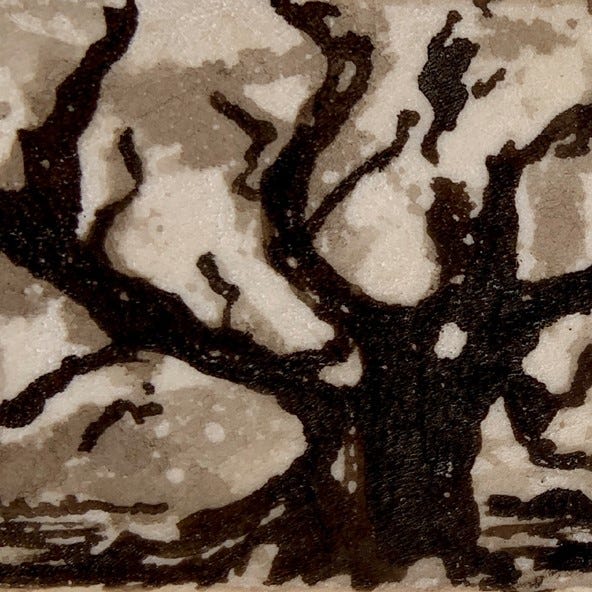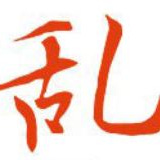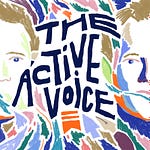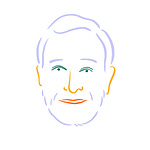In the 1990s, the English writer
was a radical environmental activist, taking part in road blockades and protesting at WTO summits. Today he calls himself a “recovering environmentalist” and doesn’t believe people can do all that much to halt the march of the markets and technology. For instance, he thinks of climate change as a predicament to be endured, not a problem to be solved. His focus instead is on making sense of this revolutionary time we are living through and finding wisdom in old stories, especially religious ones, to help us live well through civilizational collapse.Paul is not like many other writers on Substack. He is uneasy with technology, worrying about how humans use it to become gods, driving ourselves ever further from a state of nature, losing touch with the wild. That might sound depressing, but if you read his essays on his Substack,
, you are likely to find the opposite. Paul writes in search of beauty and, in my opinion, strikes on it quite often. Amid the assessment of cultural breakdown, he offers some comfort and release, giving the reader permission to turn away from technological distraction and focus on the simple things in life: family, nature, love, and intellectual nourishment.Quotes from the conversation
On the drive to write
We’re living through a very revolutionary time in terms of social change, cultural change, technological change, environmental collapse, all sorts of limits being hit. And I don’t think any of us can really quite get our heads around it. [...] I’m less interested now in trying to tell people what to do or tell people what to think, and more interested in working out what’s going on.
On growing old
When I was a young, excited, radical man, I thought I could change the world. I thought I knew everything—because you do when you’re in your 20s, or I did. And the process of getting older is the process of realizing you don’t know very much at all.
On running an “uncivilisation festival”
We are telling ourselves stories about a particular kind of progress and our relationship with technology and a relationship with the rest of nature that turned out not to be true.
On being storytelling animals
We always see through stories. We don’t see through numbers. We like to pretend in modern society that we are kind of rational creatures and we can have an objective view of reality. We can’t, really. That’s a bit of a fiction, I think. It’s one of the modern myths.
On learning from past stories
There are a lot of old stories that we can rediscover that will actually help us to navigate through the future. Because in one sense, where we are is unprecedented. In another sense, it’s just humans doing what we’ve always done.
On religious stories
They’re the stories that shape our lives. Every single culture on earth, up until very recent times, has been religious in the broad sense. In the sense of having a sense of a wider spiritual reality and our relationship with it.
On the Book of Genesis
The story there—the kind of mythic understanding of what a human is—is that we’re created and we’re put into a garden with everything else that lives and we’re there to be stewards of this garden, to tend it. We’re supposed to be gardeners. That’s who we are. And we choose not to do that.
On religion and technology
When we stop worshiping something beyond the world, we will worship the strongest thing in the world instead. I think the strongest thing in the world today is probably technology.
On modern life vs. hunter-gatherer days
We are part of the natural world, and increasingly most of us are cut off from it all the time. That creates all kinds of psychological madness and mental health problems and goodness knows what else, and physical health problems as well, which we can see manifesting everywhere and we don’t really know what to do about it.
On escaping the rat race
We have a little house with a few acres of land. We’ve homeschooled our children. We have the famous compost toilet, we grow some food, we grow our own firewood, we have a few chickens, and I somehow managed to make a living through writing, which Substack has helped me with.
On living remotely
It was just becoming increasingly hard to live in an urban environment, especially a big, big British one. I couldn’t imagine going back to it now, to be honest. I’ve become a bit of a bumpkin out here, like a hobbit. I just want to sit and write my essays, and occasionally I venture into a city and then come home after a few days.
On the stakes of modern life
Community, connection with nature, roots in a place, seeing the stars at night, tasting the clean air, putting your feet in the river. That stuff is infinitely more valuable than watching a hundred videos on YouTube, however good they are. It just is because it’s what we are, it’s where we come from, and it’s actually what we want at a fundamental level. And it’s increasingly unavailable.
On a new religion
We don’t have any shared values, we don’t have a shared religion, we don’t have a shared sense of who we are. And so we’re either going to fall apart into something completely different or we’re going to have to find a new set or somehow revert to the old.
On being attacked online
I don’t mind being attacked by strangers. I’m quite happy with people criticizing my work. I’m a writer. They’ve got every right to say everything they want to say; if they want to attack me, they can. But when you have somebody you know going for you, especially when they know it isn’t true—yeah, it’s upsetting.
On self-censorship
It’s fine to be careful and intelligent about what you write, and sensitive. That’s a good thing to do. But that’s not the same as censoring yourself because you’re scared of being mobbed or sacked or lied about or called a Nazi. And there’s a lot of that going on, and it’s a disturbing situation.
On refusing the Covid-19 vaccine
It was terrifying. It was really disturbing. And it wasn’t the vaccine that was disturbing, it was the system that was rolled out around it.
On our future post-pandemic
It looks to me like we are headed quite fast into an unprecedented level of technological control of our everyday lives. I think we’re there already, even compared to where we were 10 years ago. And I think that could get deeper and deeper.
On losing a father to suicide
One of the strange consequences of it is that in some ways, for me, I felt like I could say things I couldn’t have said when he was alive, which is rather a sad consequence, in a way.
On standing in the kitchen at the party
After a sort of attempted foray into the mainstream, I’ve found out that I’m just much more comfortable on the margins. I don’t want the pressure of trying to be famous or successful in conventional terms. I just don’t feel like I really belong there.
Advice to other writers
Don’t ever feel that writing is a career, because it’s not. Don’t allow yourself ever to say anything you don’t think is true. Don’t allow yourself to write about something you don’t believe in. Find a place where you can do what you are passionate about and what you think is true and have integrity all the time.
Paul’s recommended reads:
Show notes
Subscribe to The Abbey of Misrule on Substack
Find more books and information on Paul on his personal website
Paul’s mentioned books: Confessions of a Recovering Environmentalist, Real England
[02:20] Words as supreme communication
[04:34] Being an activist writer
[06:45] Environmentalism
[15:39] Turning to religion
[24:25] Having a famous compost toilet
[32:41] Being attacked as a “fascist”
[40:17] On the tension of censorship and integrity
[44:37] Debating the Covid-19 vaccine
[50:30] Substack as old-fashioned, in a good way
[53:01] Liberation after losing a father
[56:00] Advice to other writers
[57:42] Recommended writers on Substack
The Active Voice is a podcast hosted by Hamish McKenzie, featuring weekly conversations with writers about how the internet is affecting the way they live and write. It is produced by Hanne Winarsky, with audio engineering by Seven Morris, content production by Hannah Ray, and production support from Bailey Richardson. All artwork is by Joro Chen, and music is by Phelps & Munro.
Postscript


























The Active Voice: Paul Kingsnorth is happiest on the margins